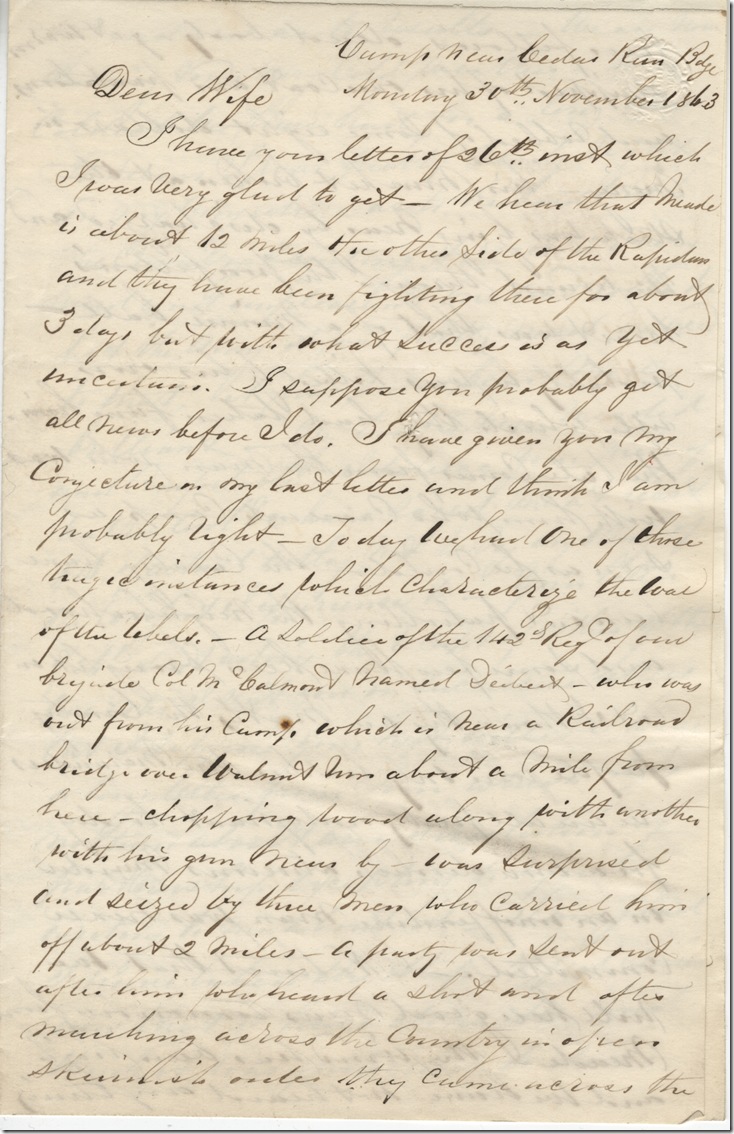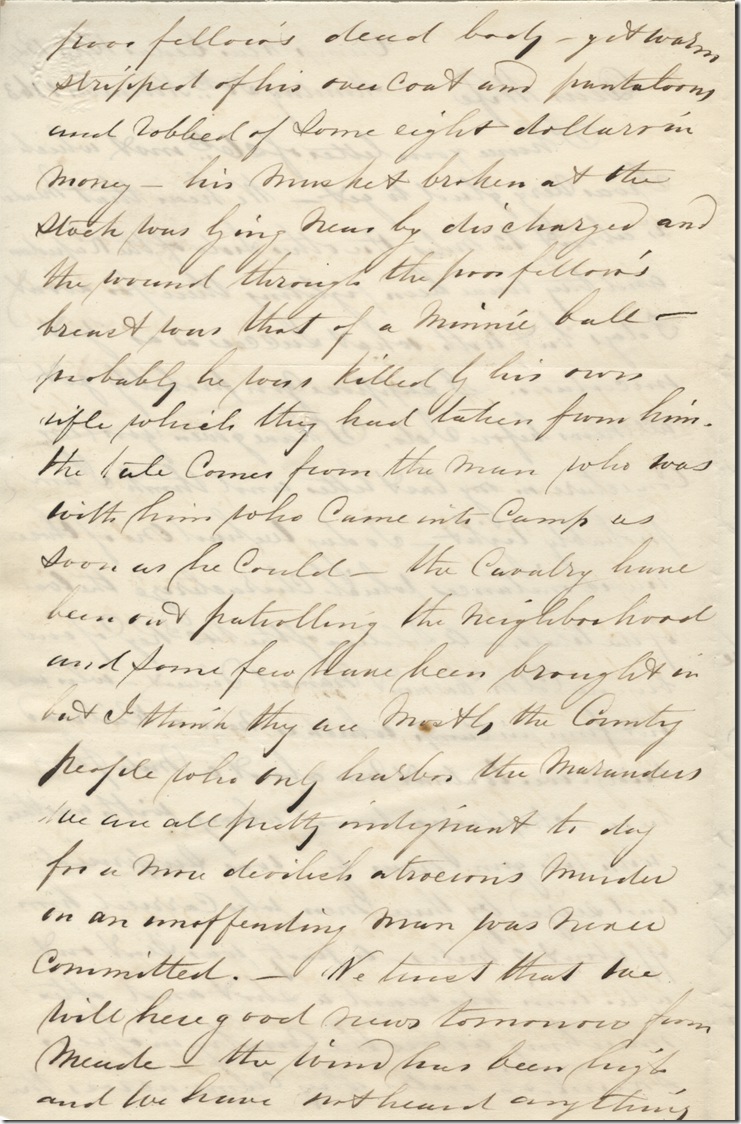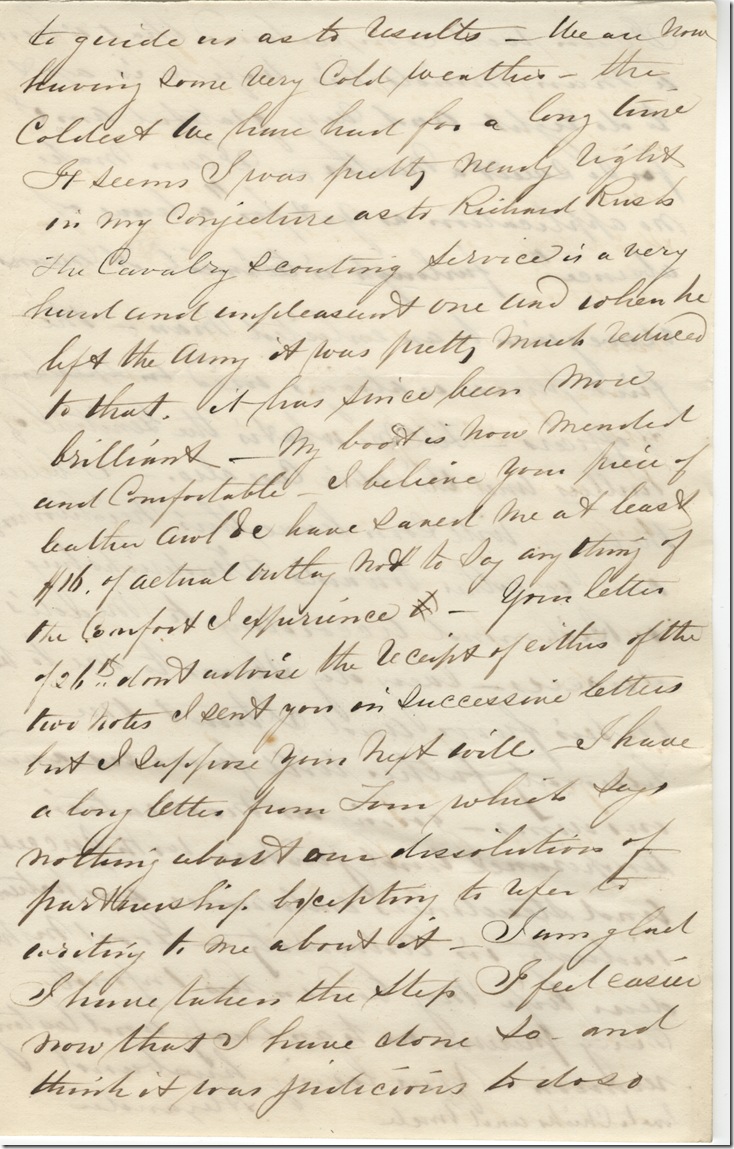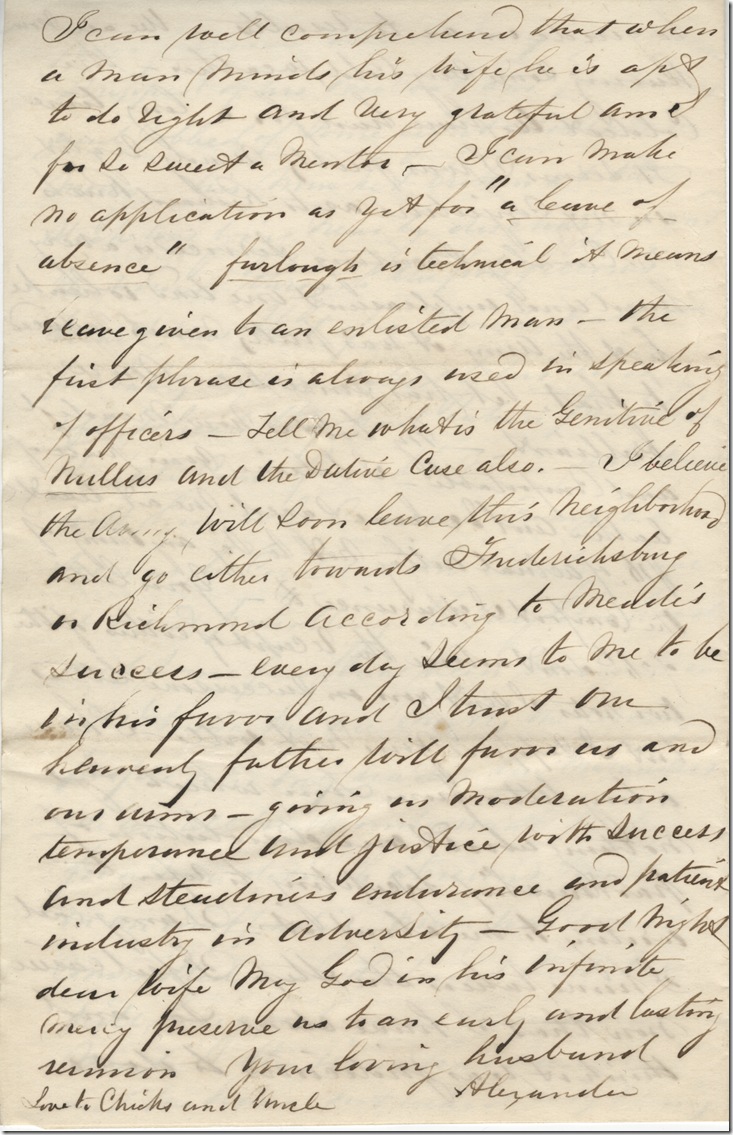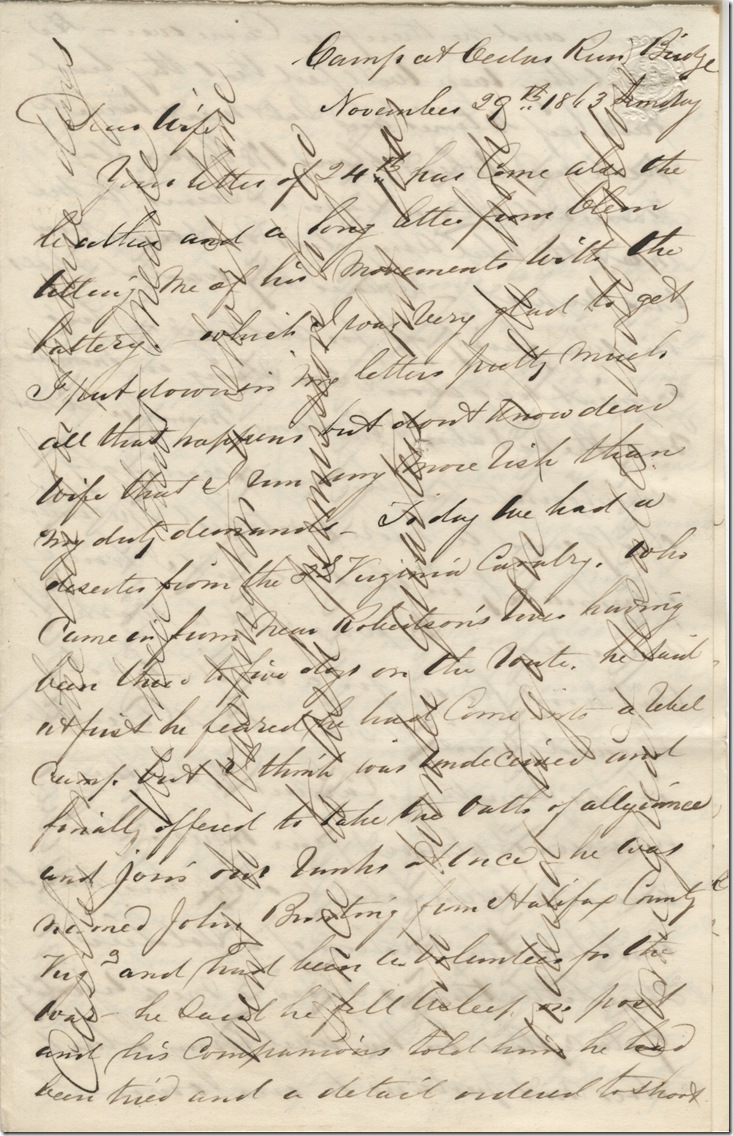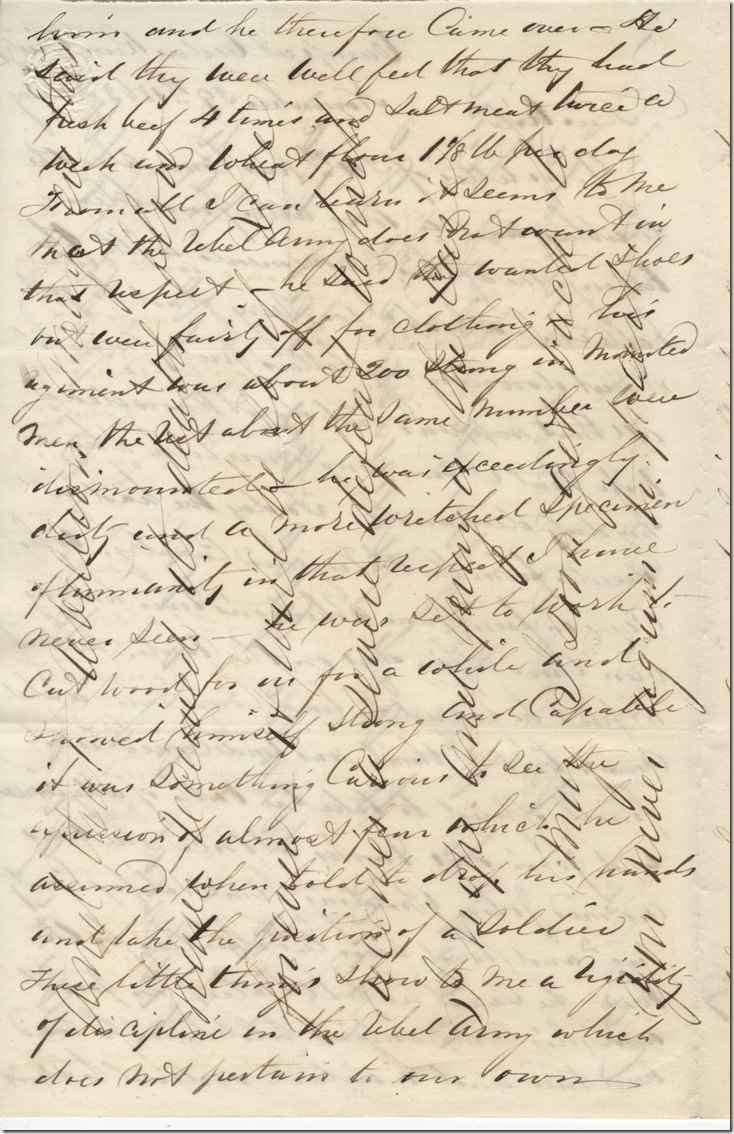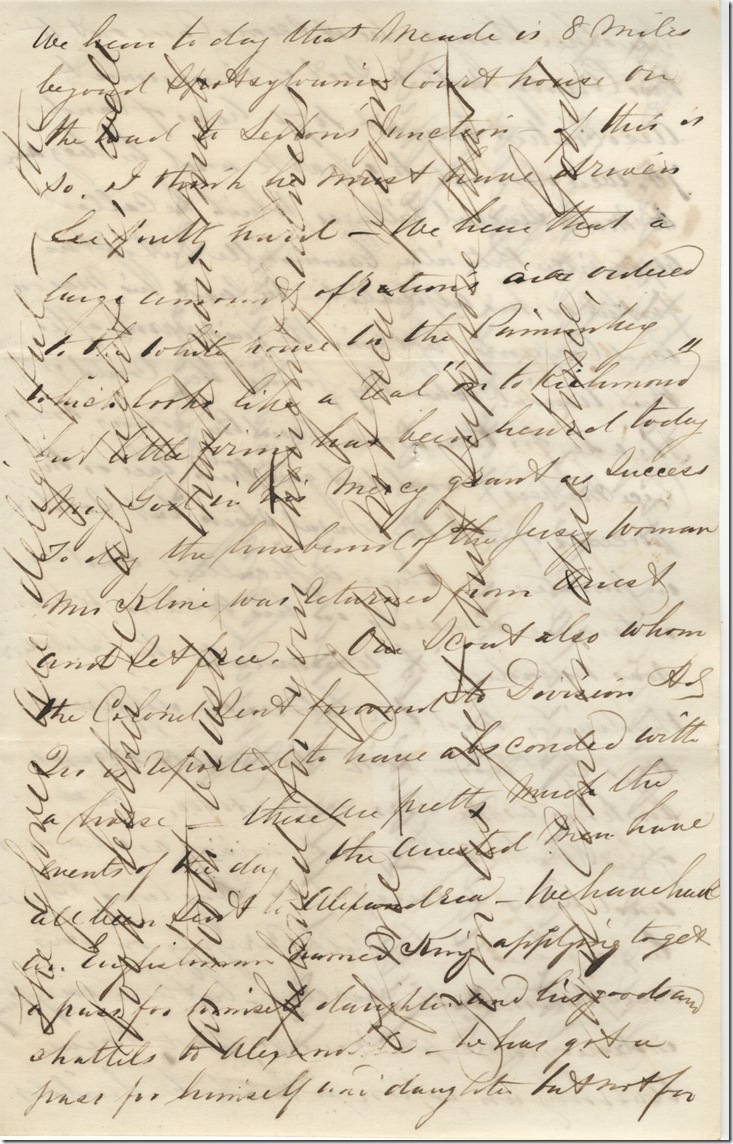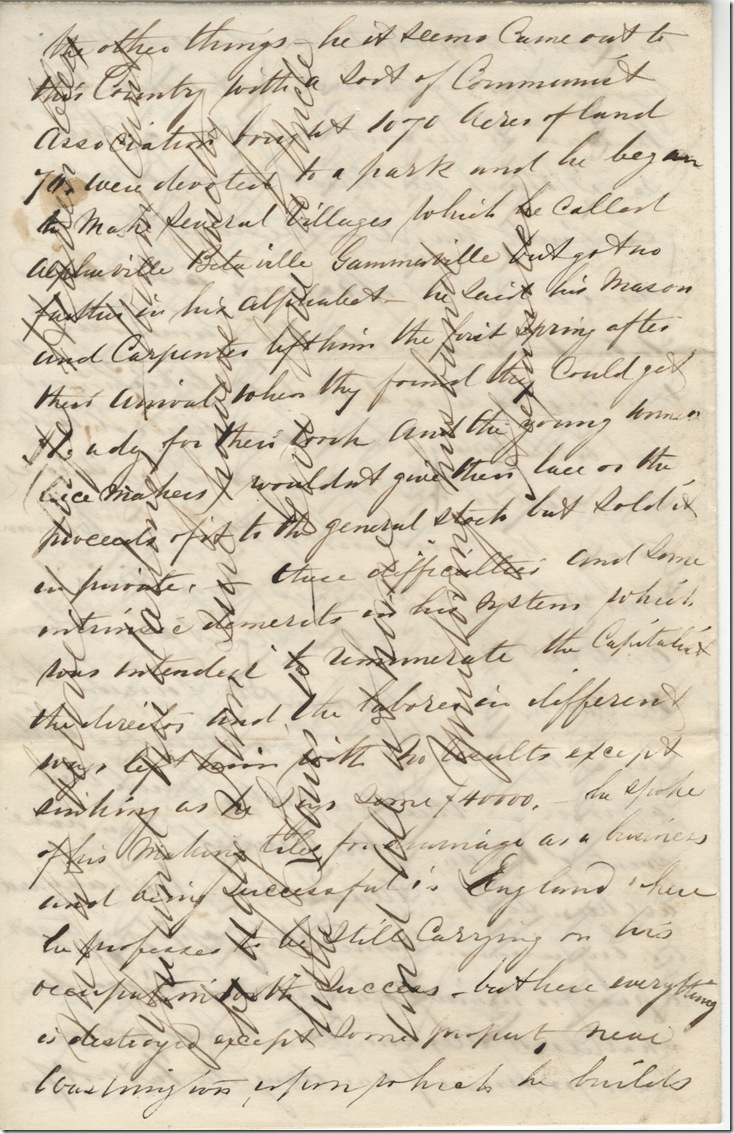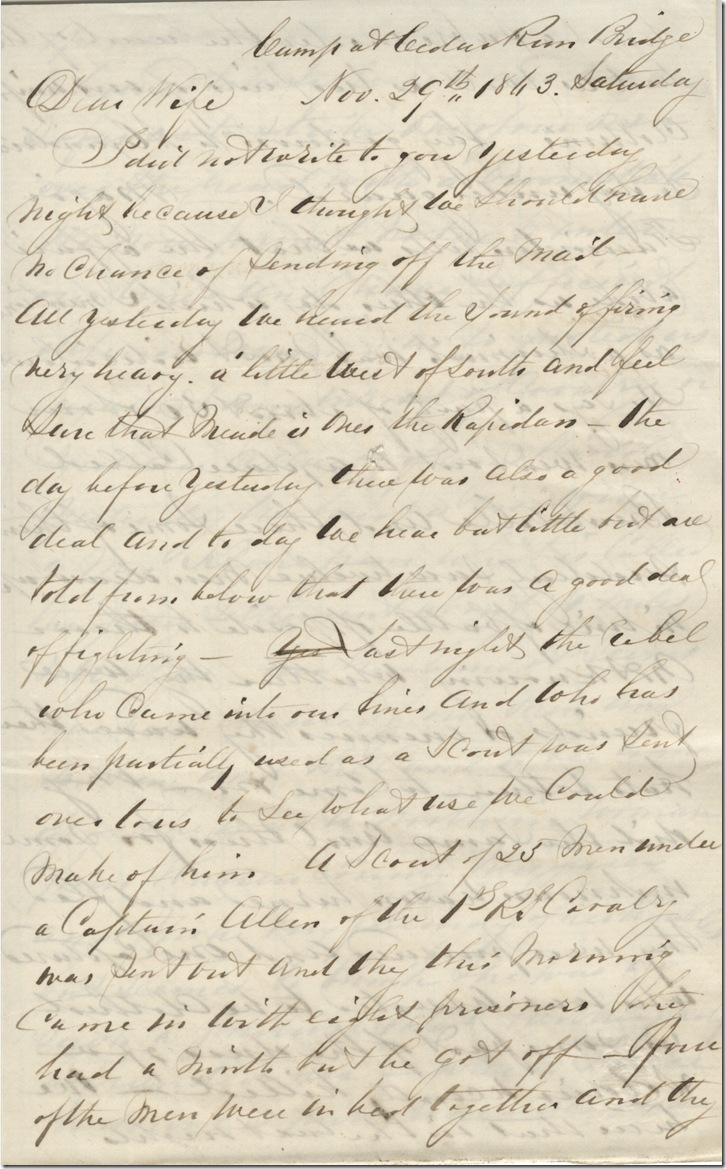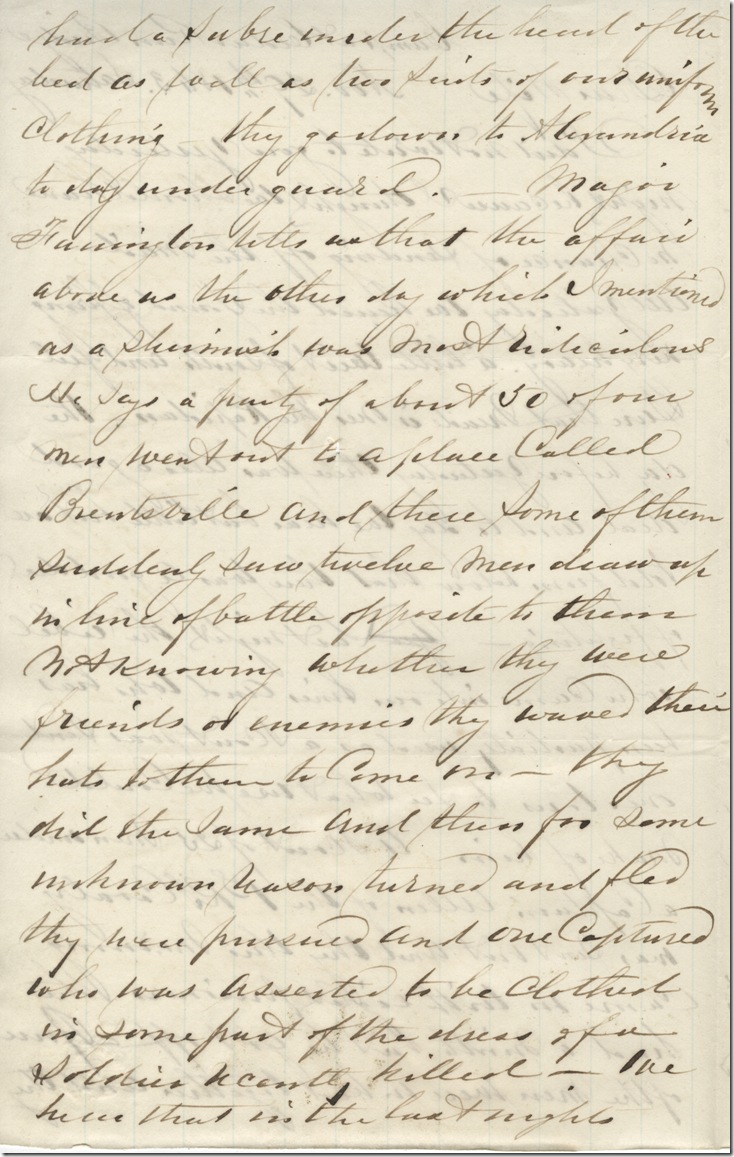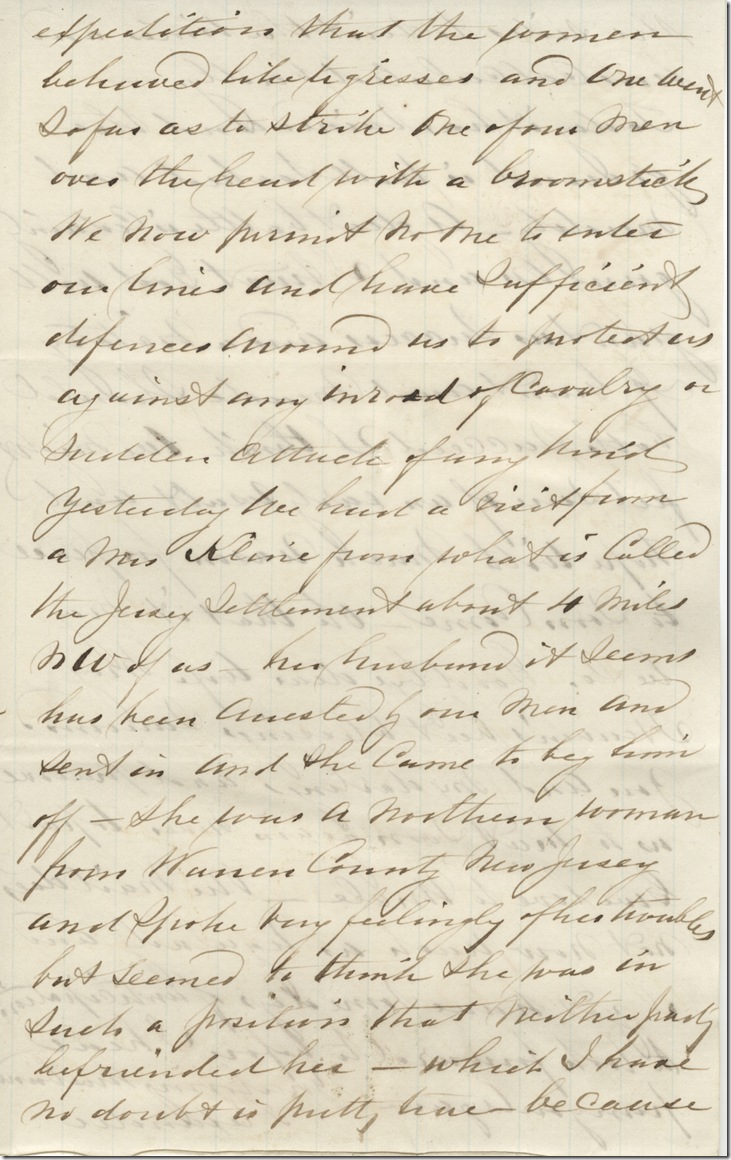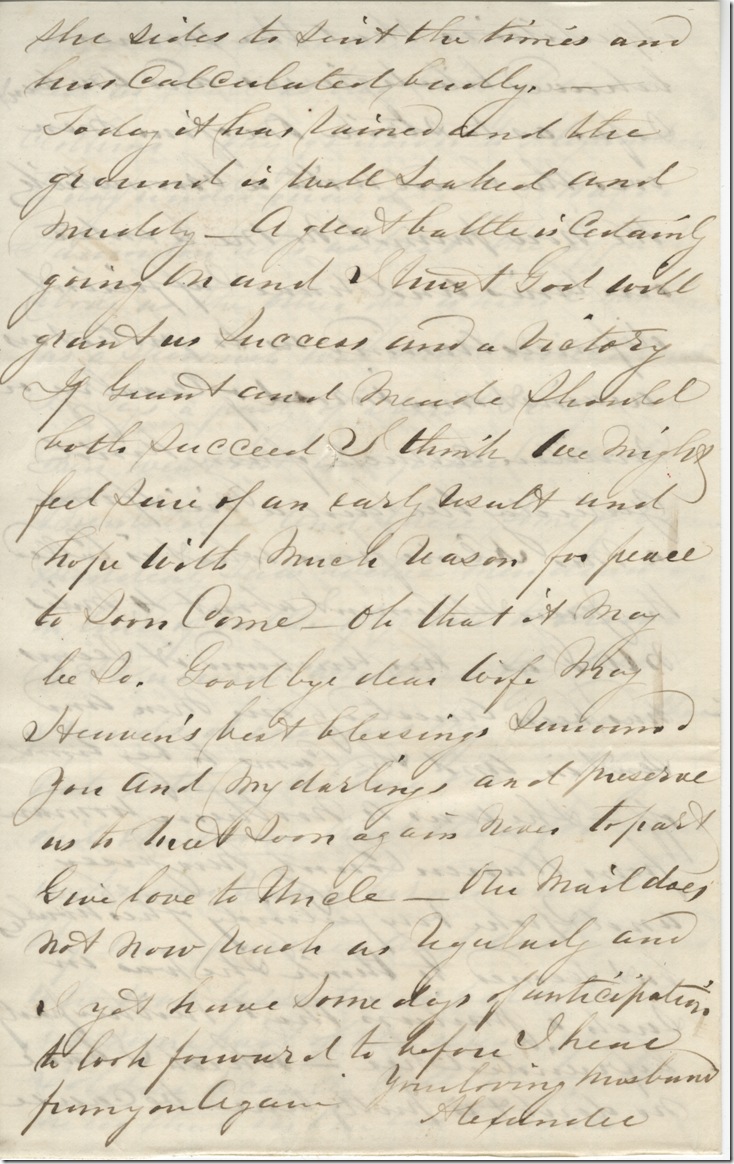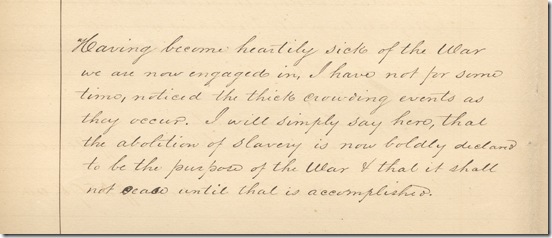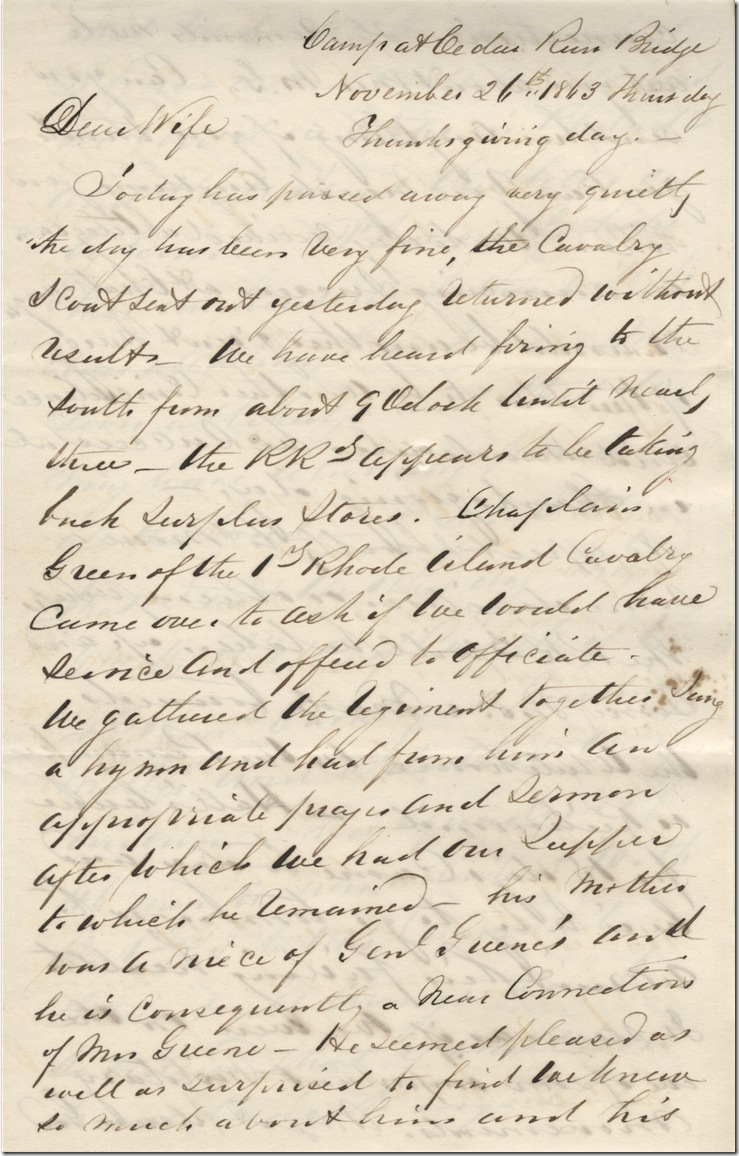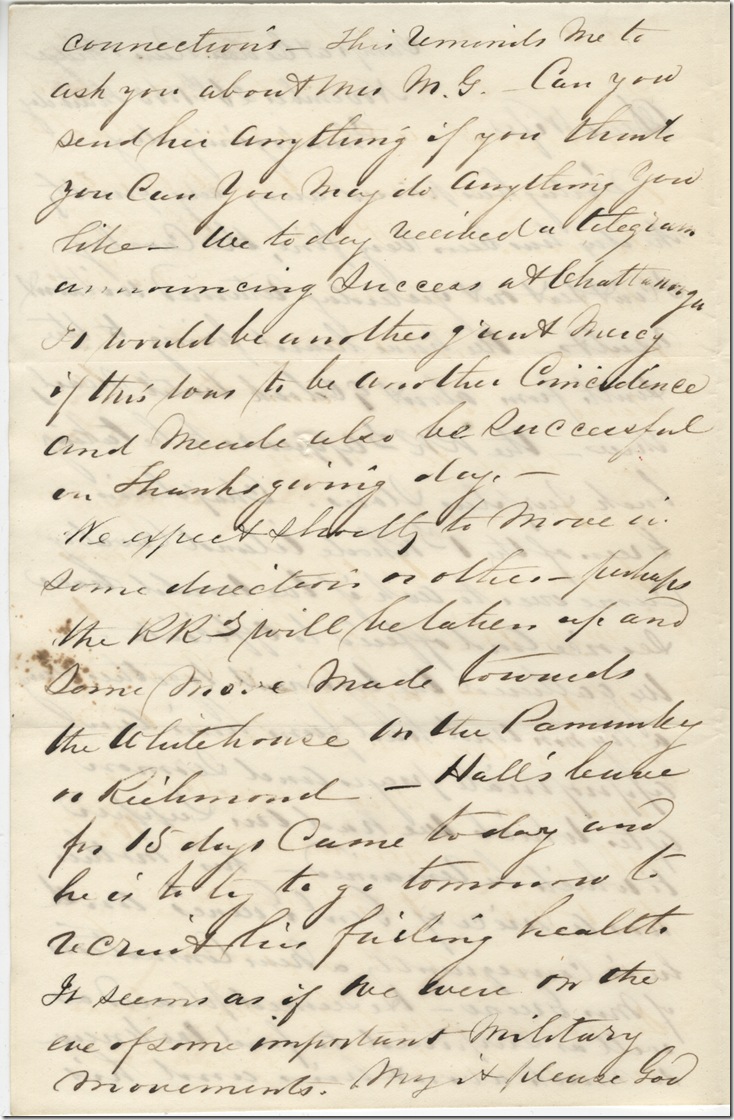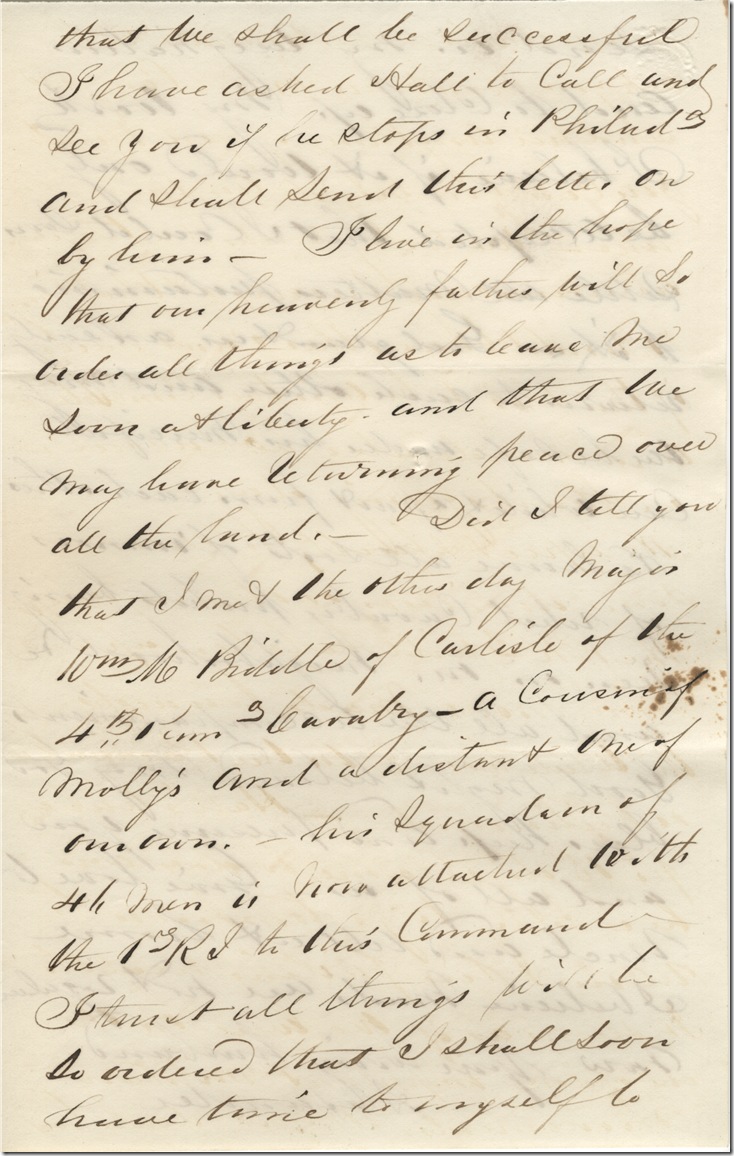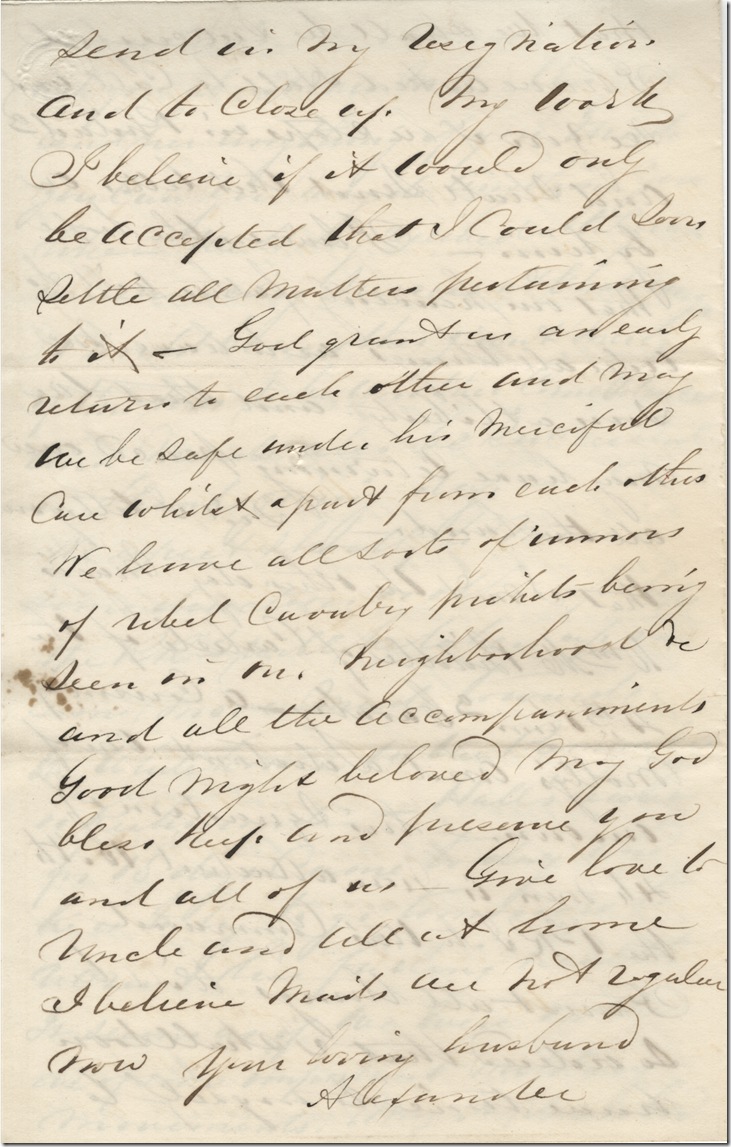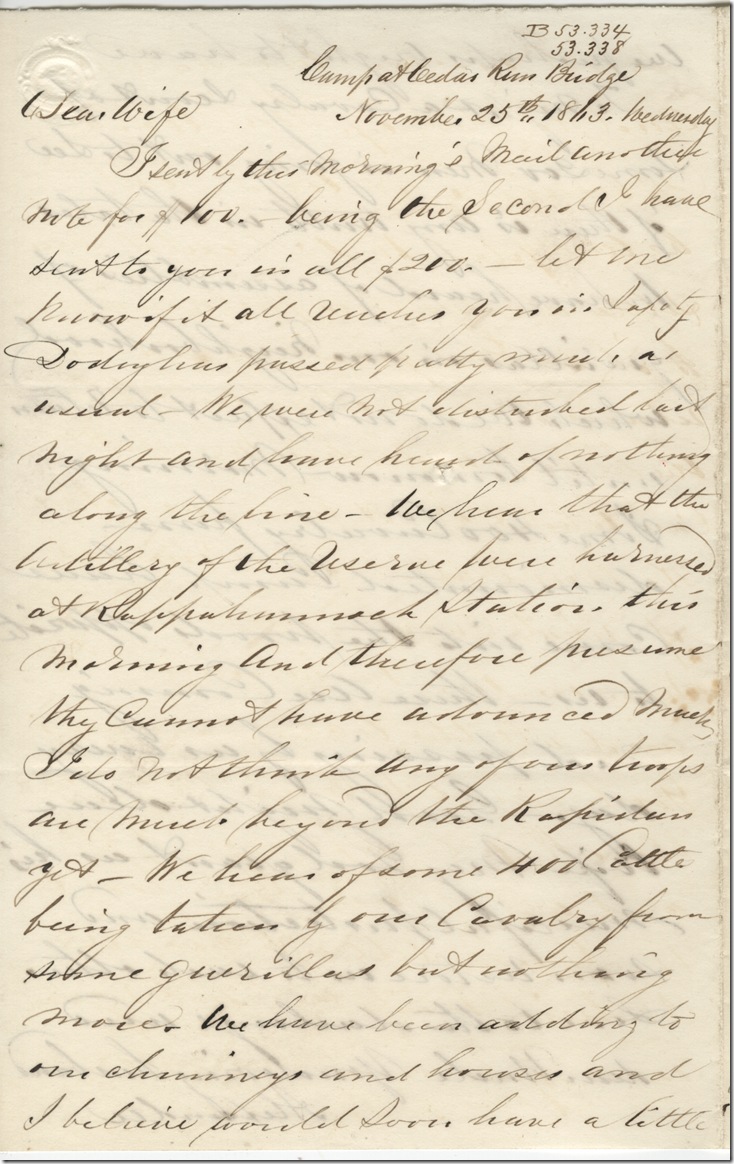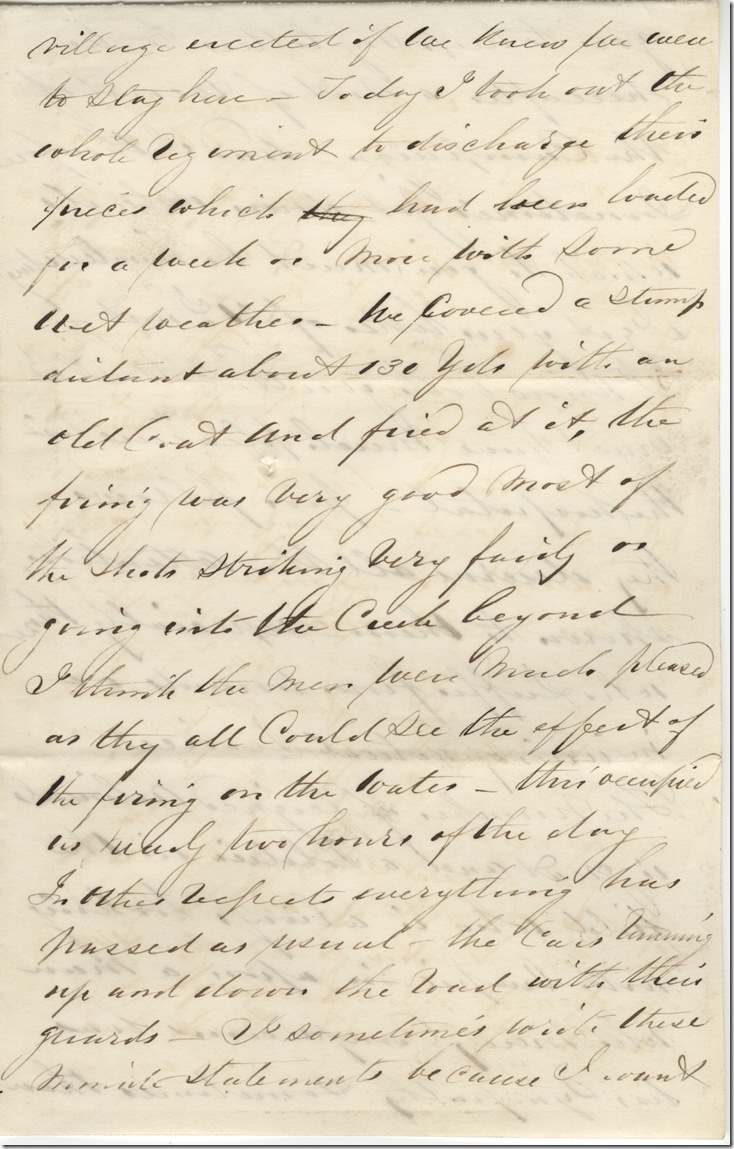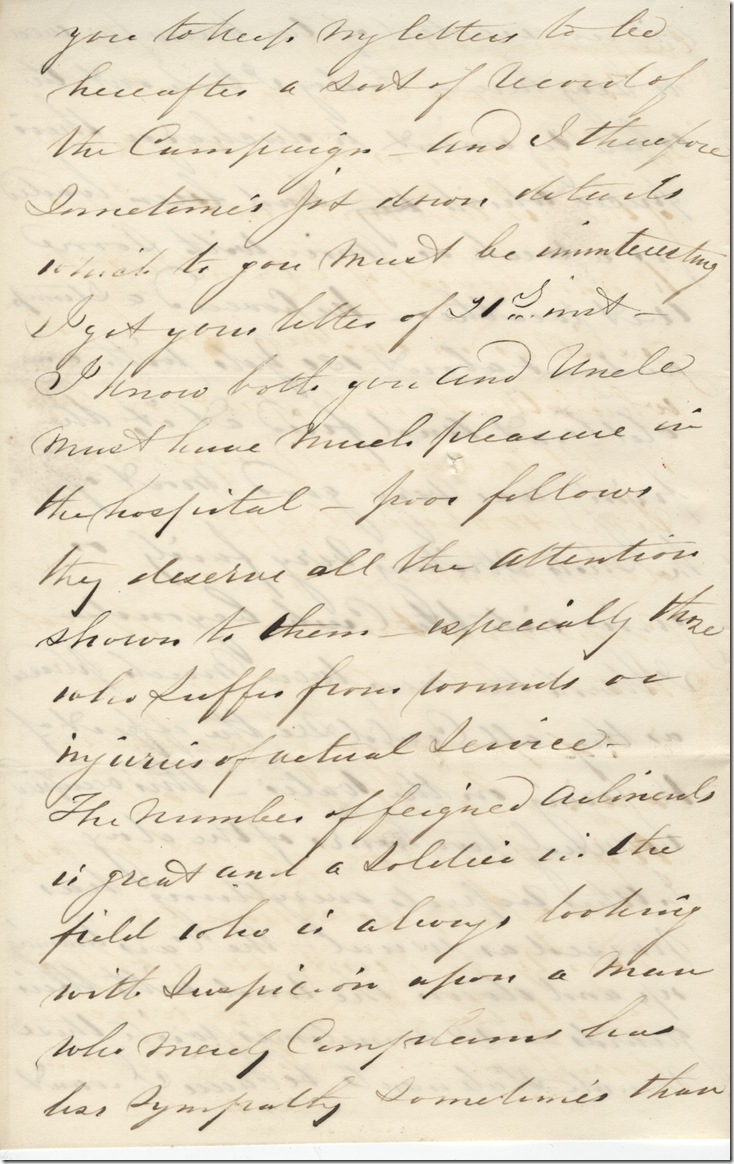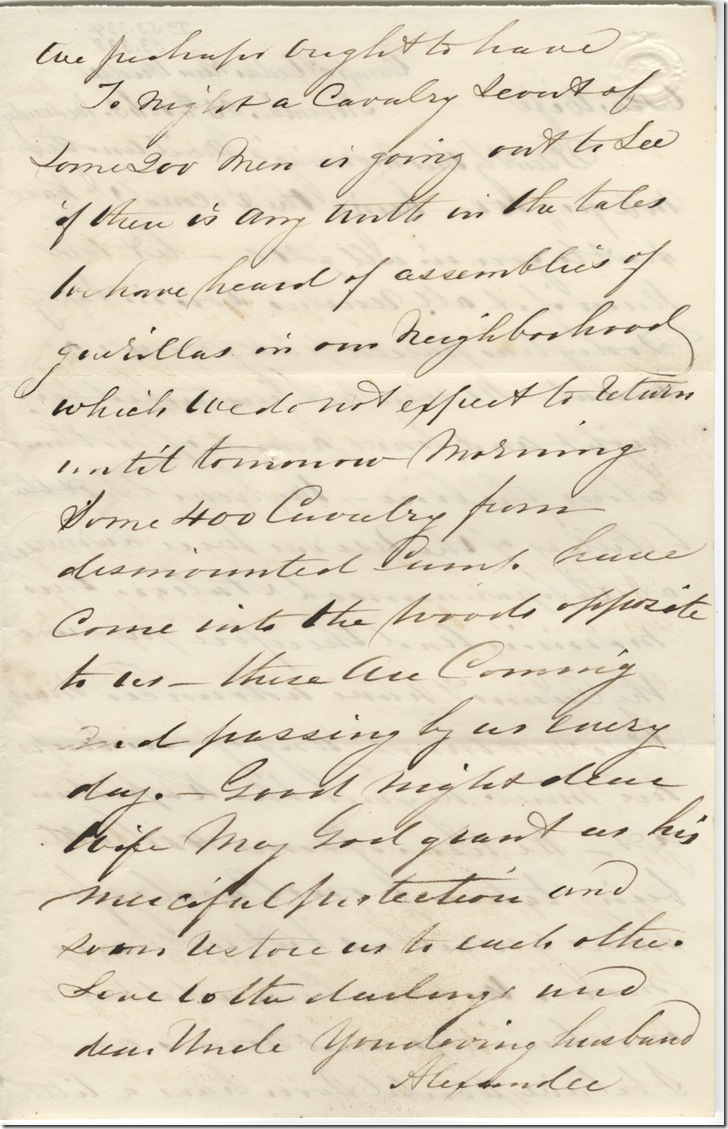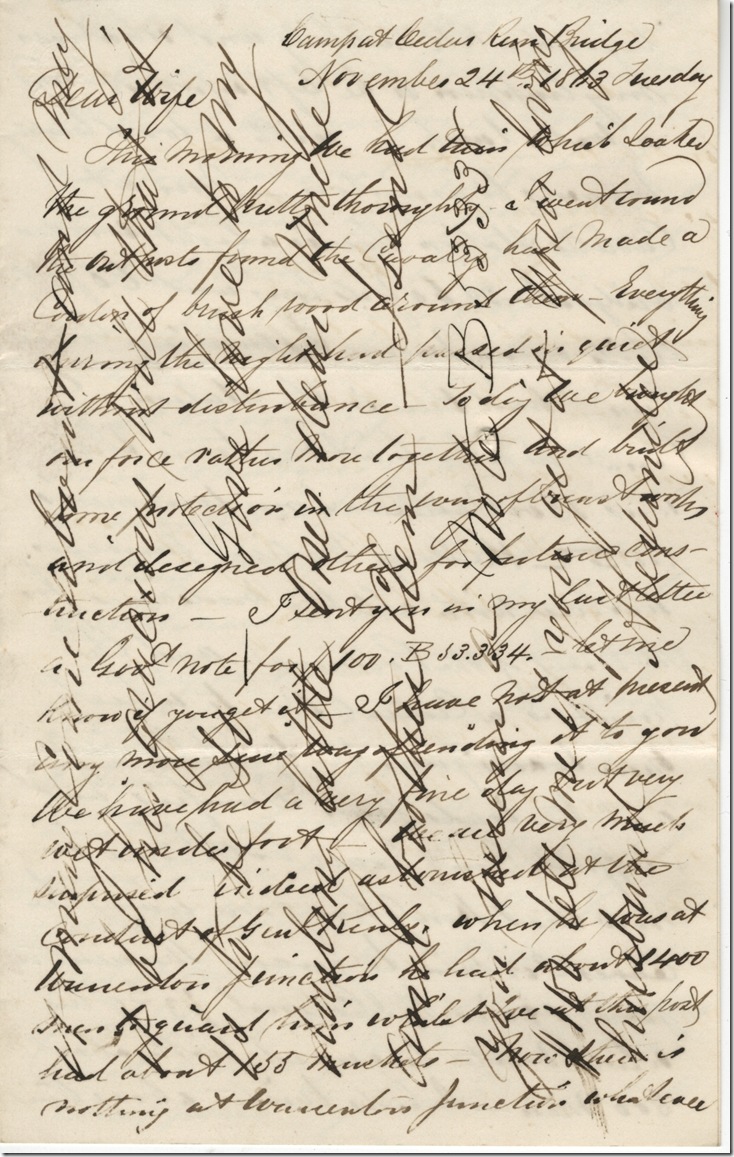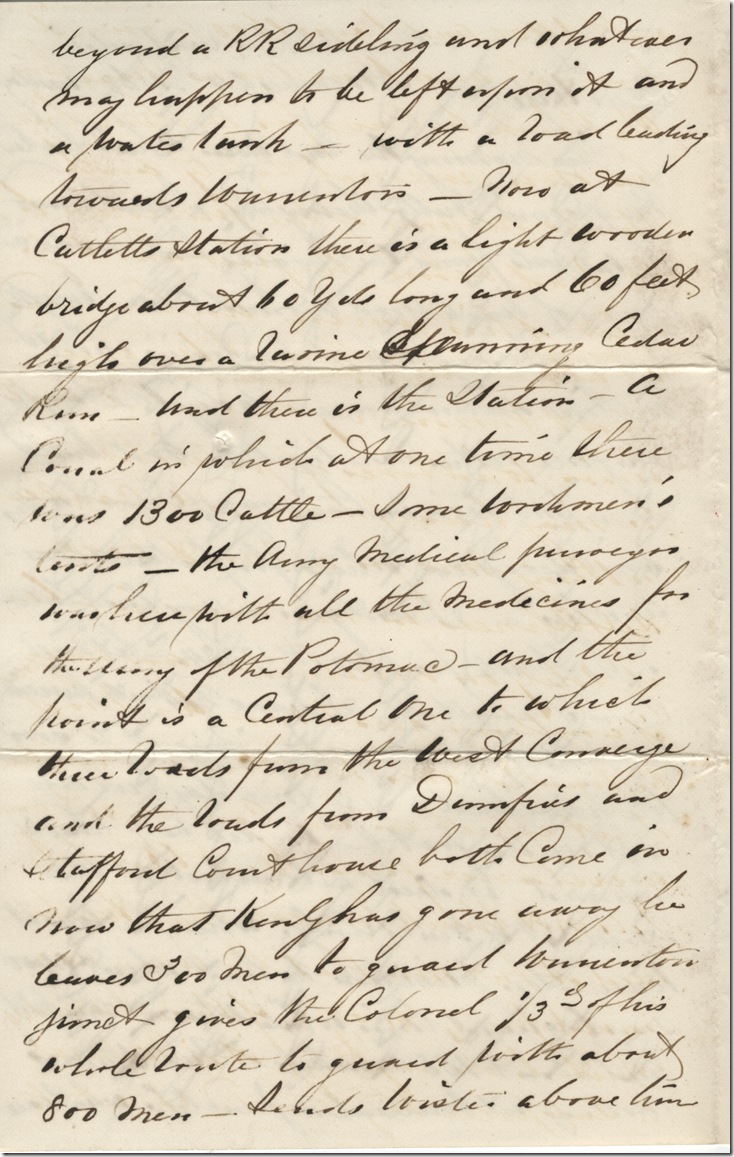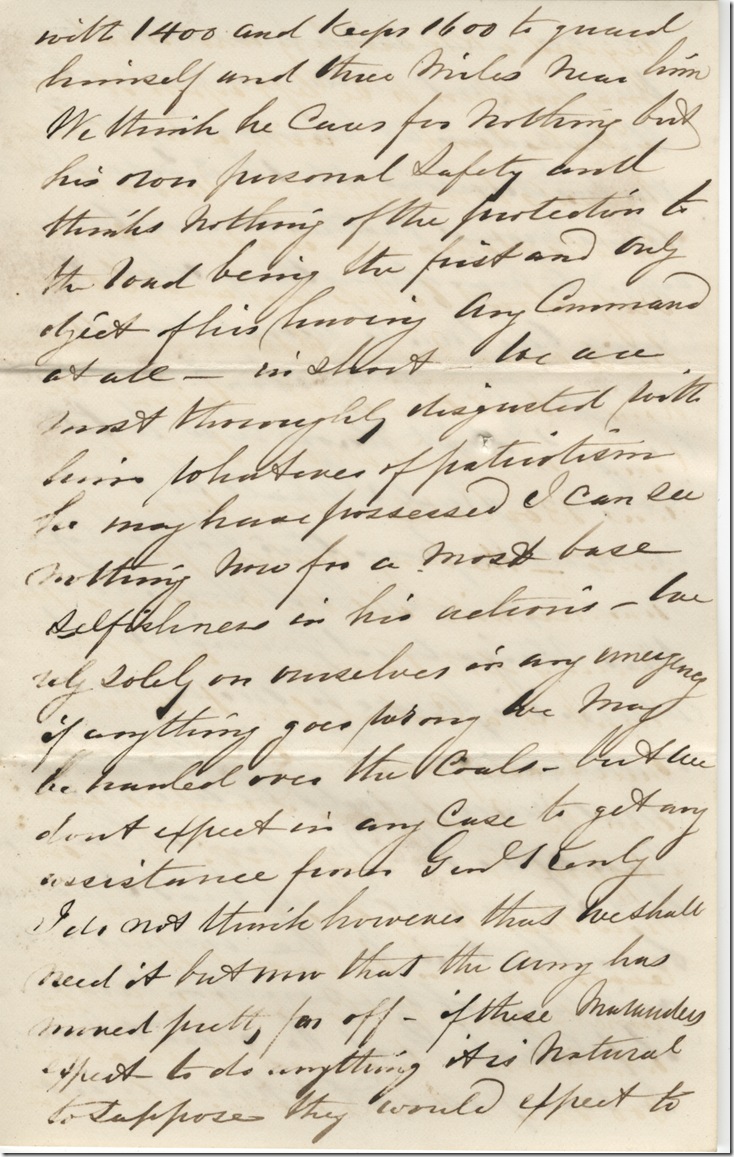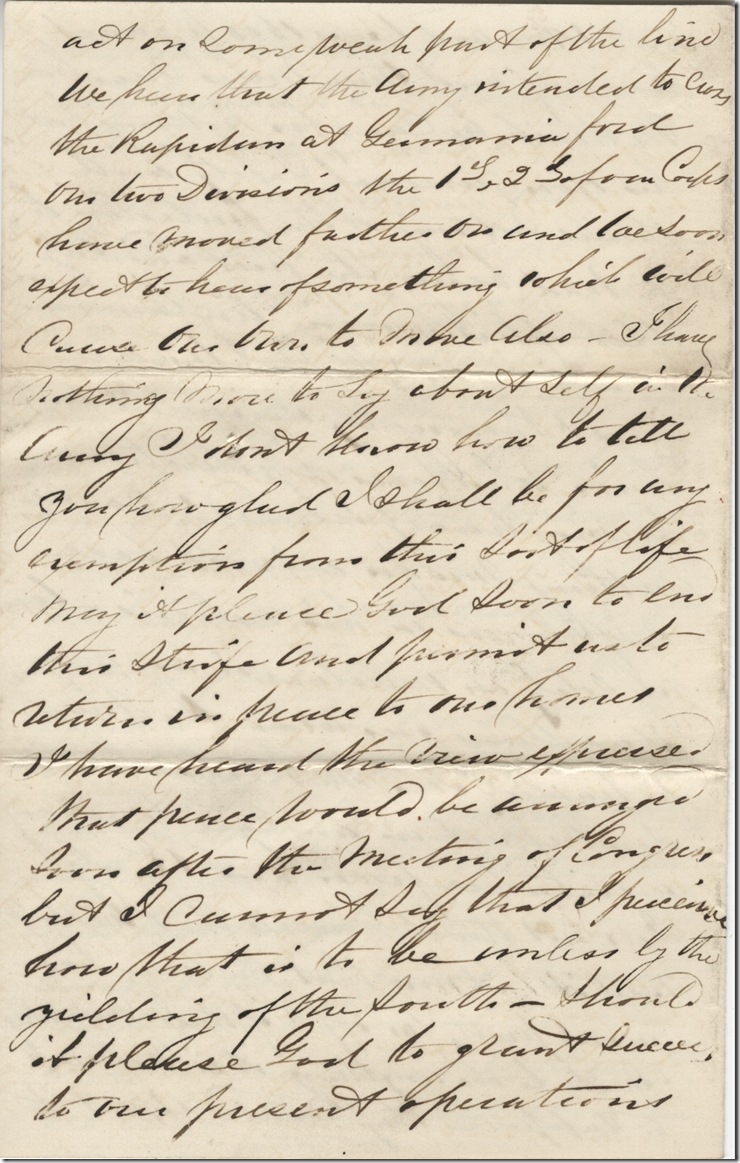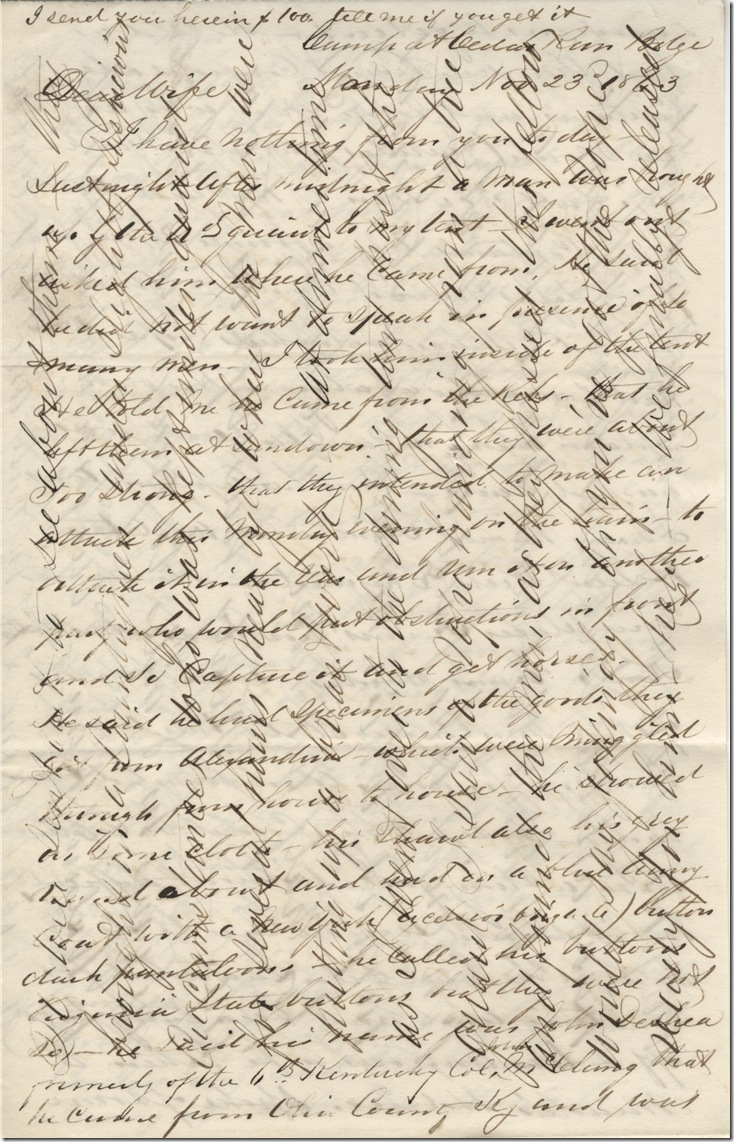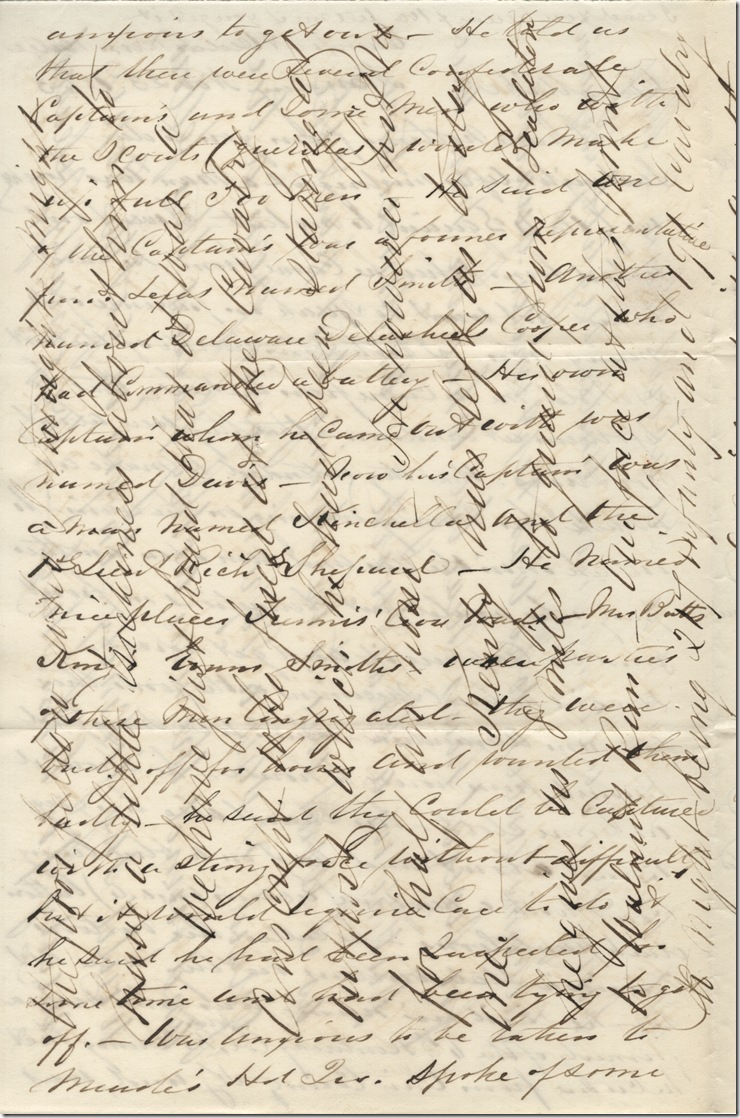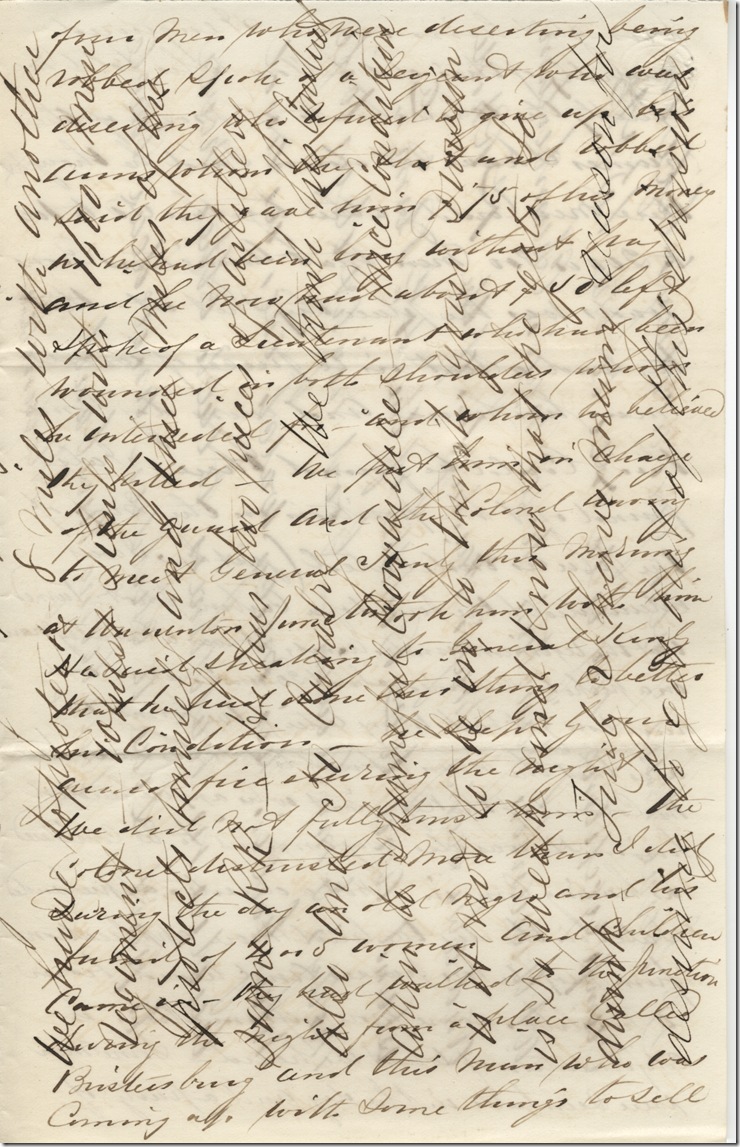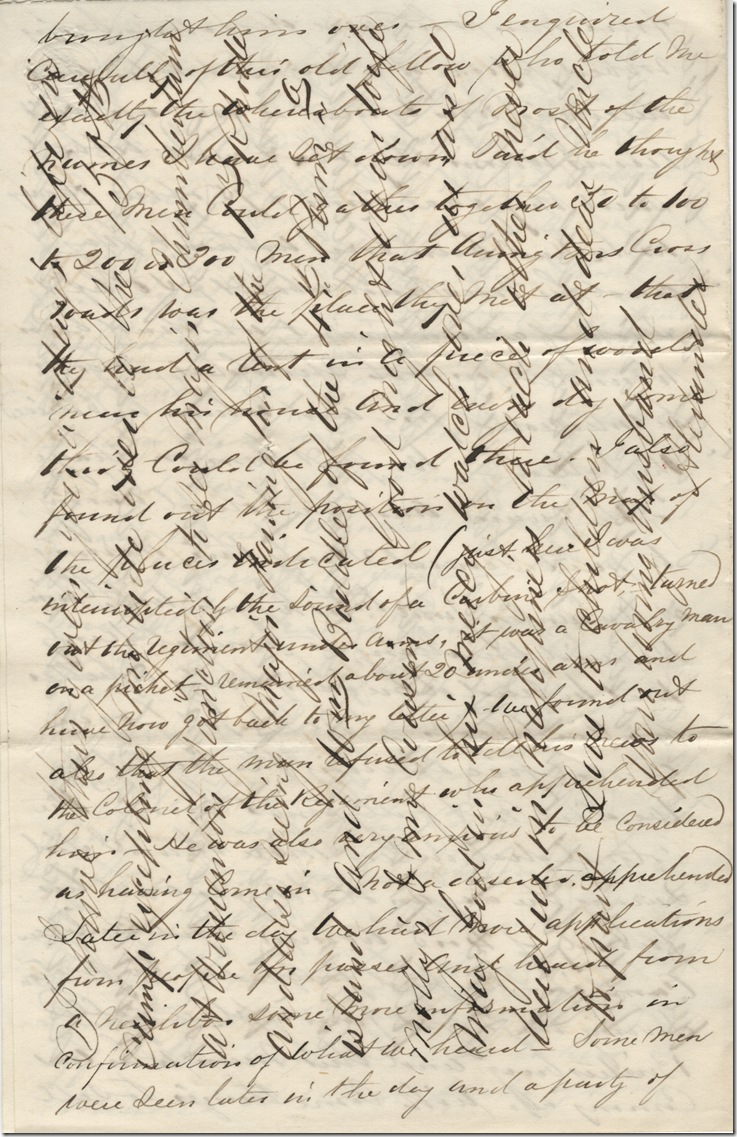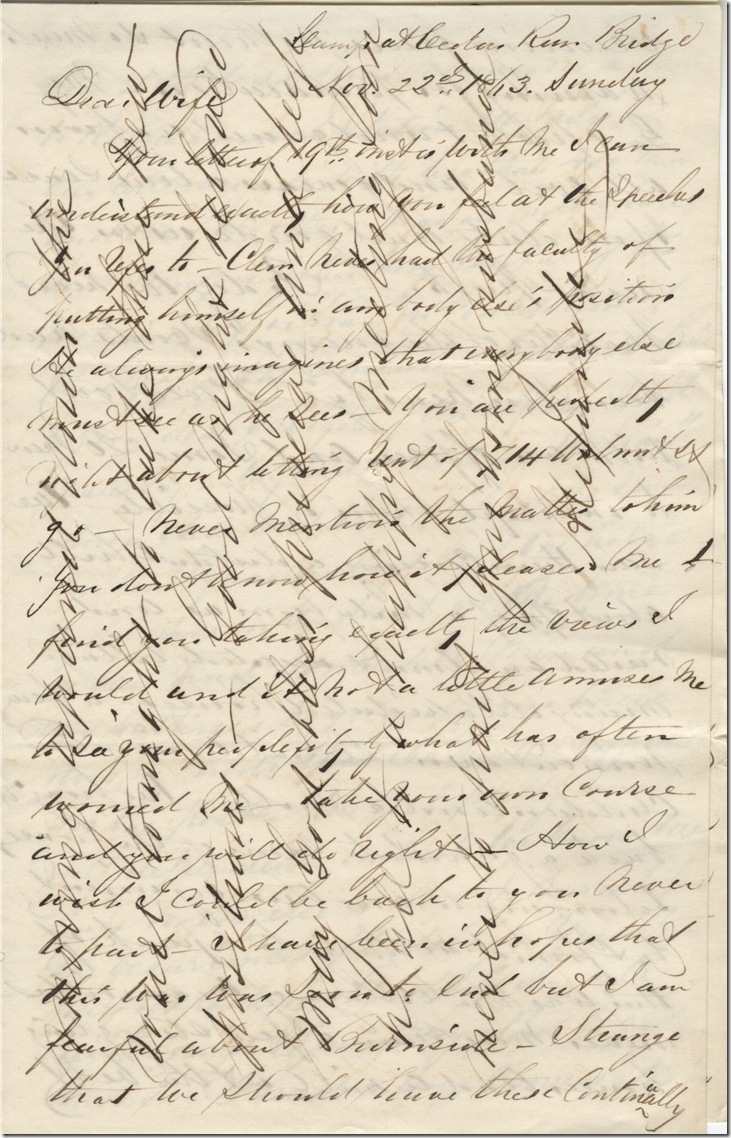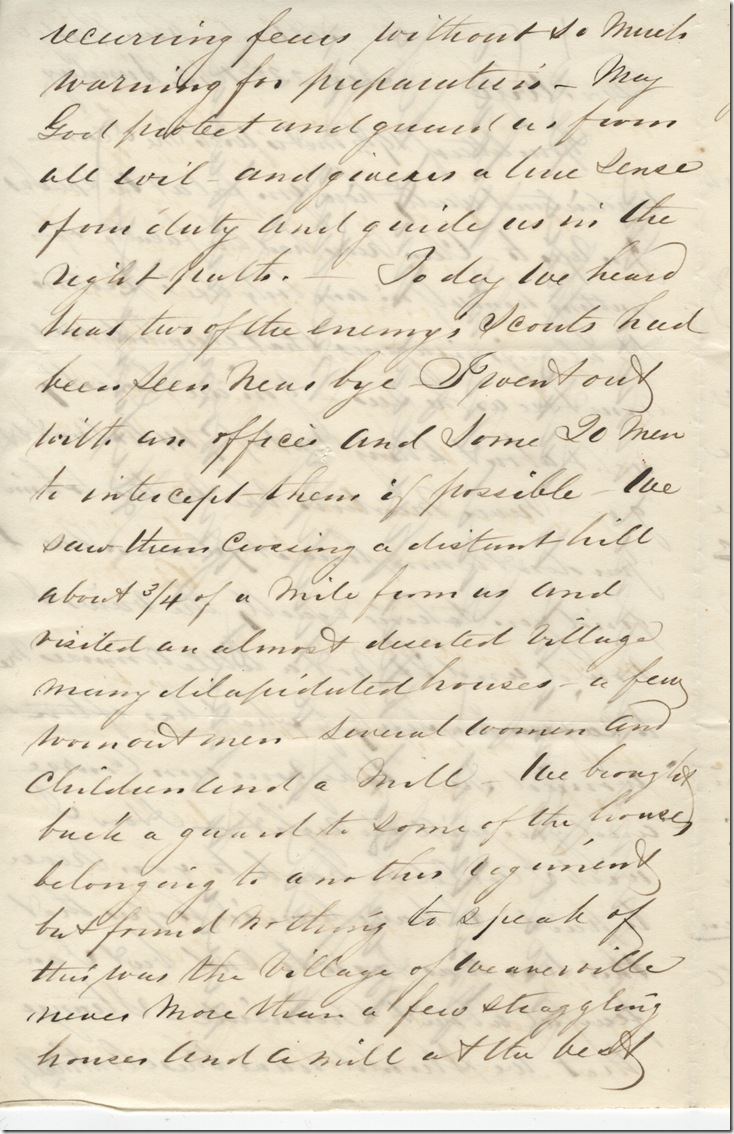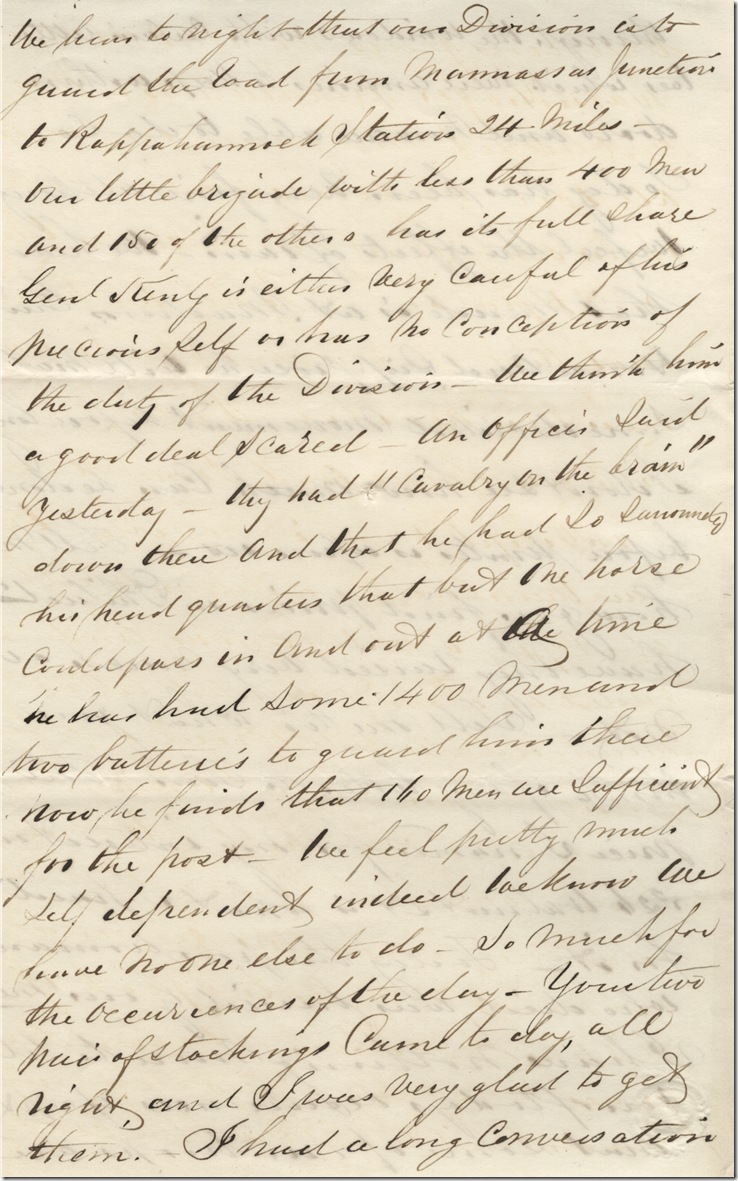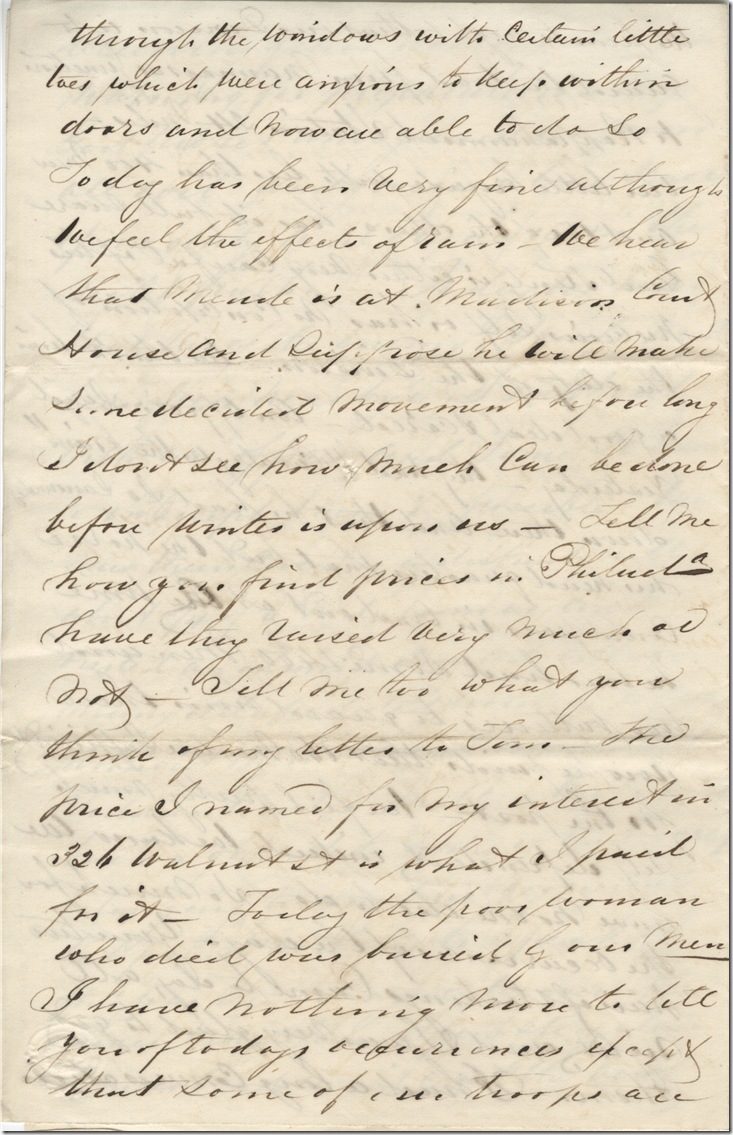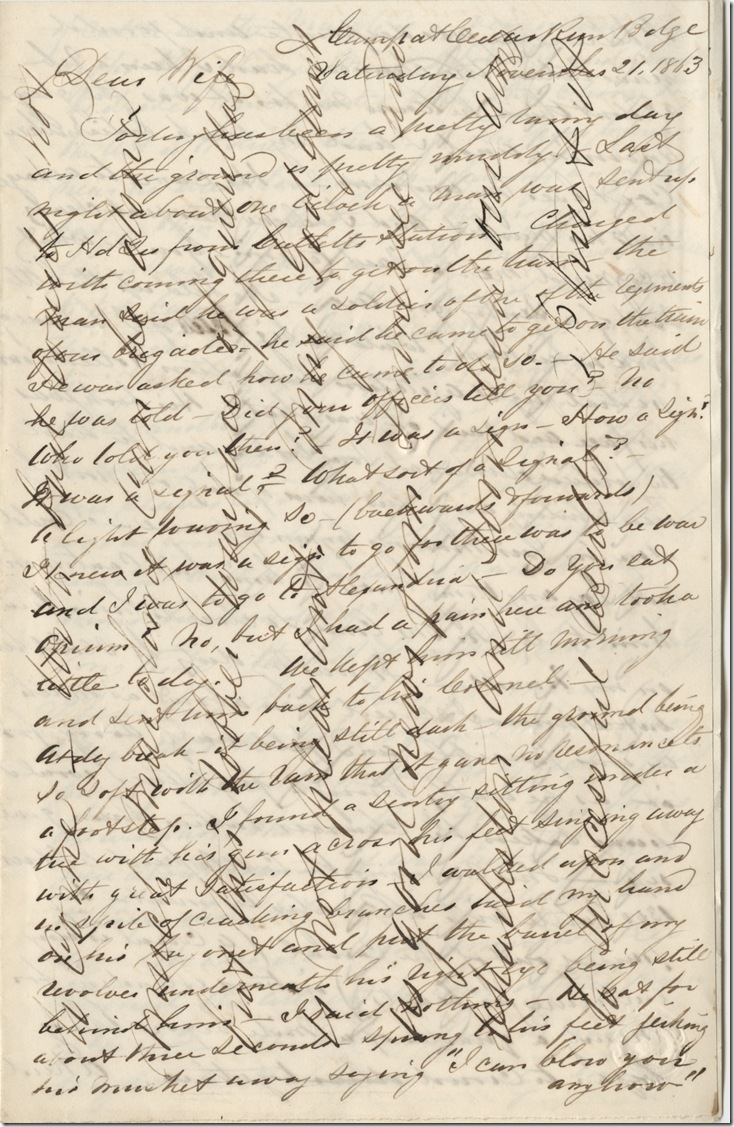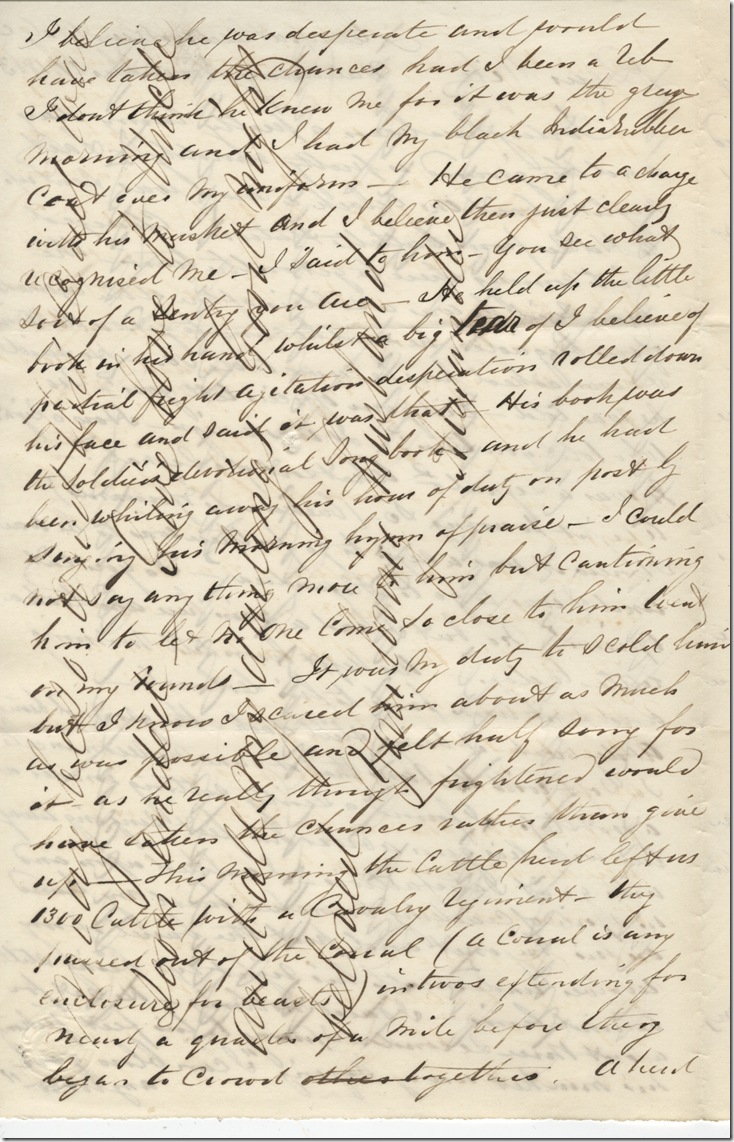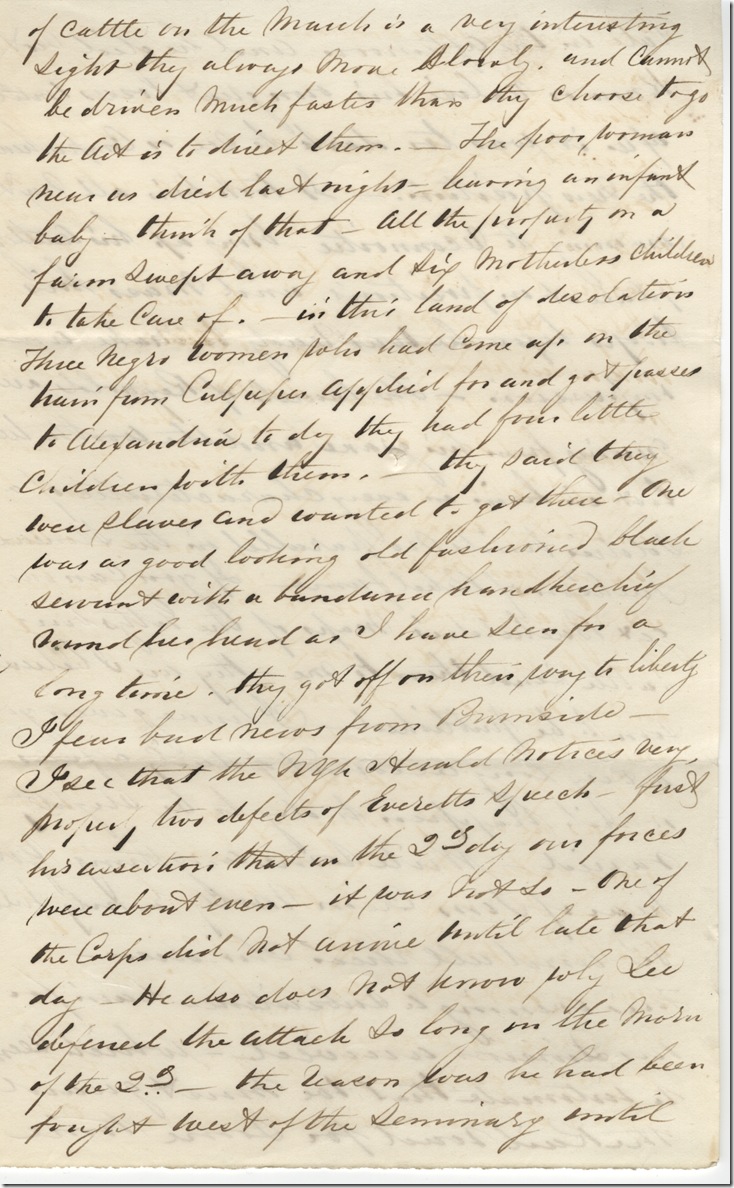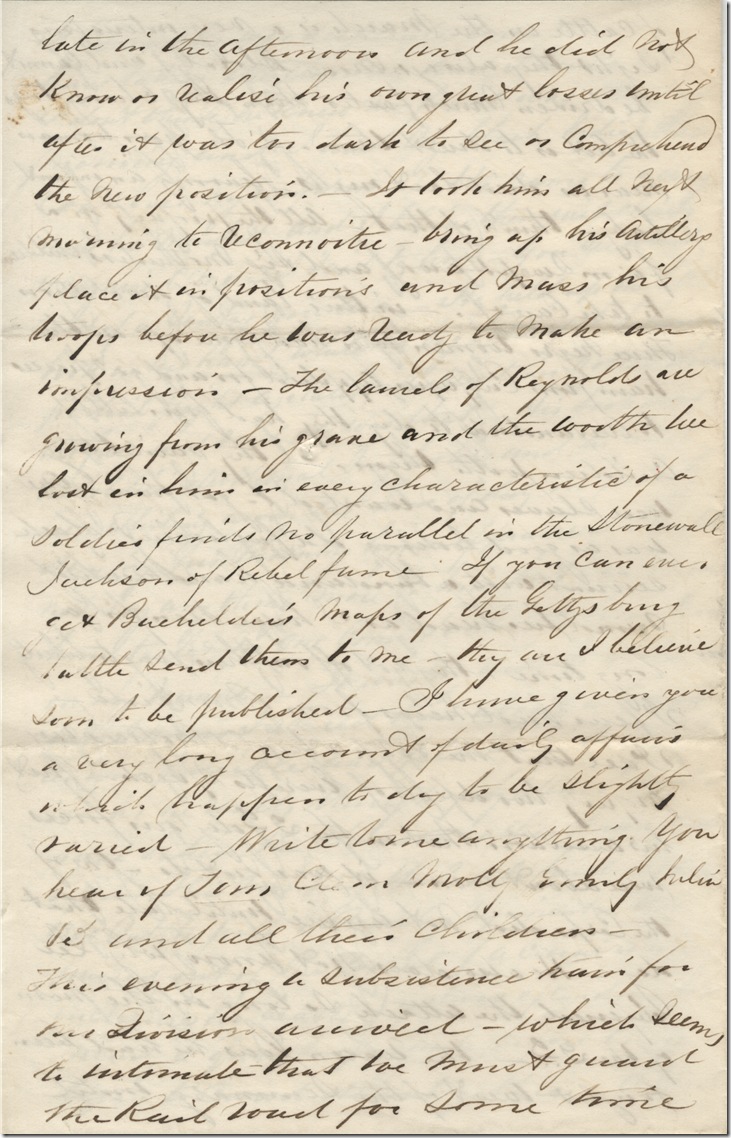Alexander Biddle was a member of the prominent Philadelphia Biddle family and was married to Julia Williams Rush, the granddaughter of Dr. Benjamin Rush. Biddle served with the 121st Pennsylvania Volunteer Infantry, beginning in September 1862. Starting out as a major, he would participate in Fredericksburg and Gettysburg, among other engagements, and would leave the service as a lieutenant colonel. (He was commissioned, but never mustered, as colonel)
Transcript:
Camp at Cedar Run Bridge
Monday, 30th November 1863
Dear Wife,
I have your letter of 26th inst which I was very glad to get. We hear that Meade is about 12 miles on the other side of the Rapidan and they have been fighting there for about 3 days but with what success is as yet uncertain. I suppose you probably get all news before I do. I have given you my conjecture in my last letter and think I am probably right. Today we had one of those huge instances which characterize the war of the rebels. A soldier of the 142nd Reg of our brigade Col McCalmont named Deibert who was out from his camp which is near a Railroad bridge over Walnut Run about a mile from here chopping wood along with another with his gun nearby, was surprised and seized by three men who carried him off about 2 miles. A party was sent out after him who heard a shot and after marching across the country in open skirmish they came across the poor fellow’s dead body. Yet warm, stripped of his overcoat and pantaloons and robbed of some eight dollars in money. His musket broken at the stock was lying near by discharged and the wound through the poor fellow’s breast was that of a minnie ball, probably he was killed by his own rifle which they had taken from him, the tale comes from the man who was with him who came into camp as soon as he could. The cavalry have been out patrolling the neighborhood and some few have been brought in but I think they are mostly the country people who only harbor the marauders we are all pretty indignant today for a more devilish atrocious murder on an unoffending man was never committed. We trust that we will have good news tomorrow from Meade. The wind has been high and we have not heard anything to guide us as to results. We are now having some very cold weather. The coldest we have had for a long time. It seems I was pretty nearly right in my conjecture as to Richard Rush, the cavalry scouting service is a very hard and unpleasant one and when he left the army it was pretty much reduced to that it has since been more brilliant. My boot is now mended and comfortable. I believe your piece of leather have saved me at least $16 of actual outlay not to say anything of the comfort I experience. Your letter of 26th don’t advise the receipt of either of the two notes I sent you in successive letters but I suppose your next will. I have a long letter from Tom which says nothing about our dissolution of partnership excepting to refer to writing to me about it. I am glad I have taken the step. I feel easier now that I have done so and think it was judicious to do so. I can well comprehend that when a man minds his wife he is apt to do right and very grateful am I for so sweet a mentor. I can make no application as yet for “a leave of absence” furlough is technical, is means leave given to an enlisted man. The first phrase is always used in speaking of officers. Tell me what is the genitive of nullus and the dative case also. I believe the army will soon leave this neighborhood and go either towards Fredericksburg to Richmond according to Meade’s success. Everyday seems to me to be in his favor and I trust our heavenly father will favor us and our arms, giving us moderation, temperance, and justice with success and steadiness, endurance and patient industry in adversity. Good night dear wife, may God in his infinite mercy preserve us to an early and lasting reunion. Love to chicks and uncle.
Your loving husband, Alexander
Citation: Alexander Biddle (1819-1899), autograph letter signed to Julia Williams Rush Biddle, 30 November 1863. Rush IV:30:37
